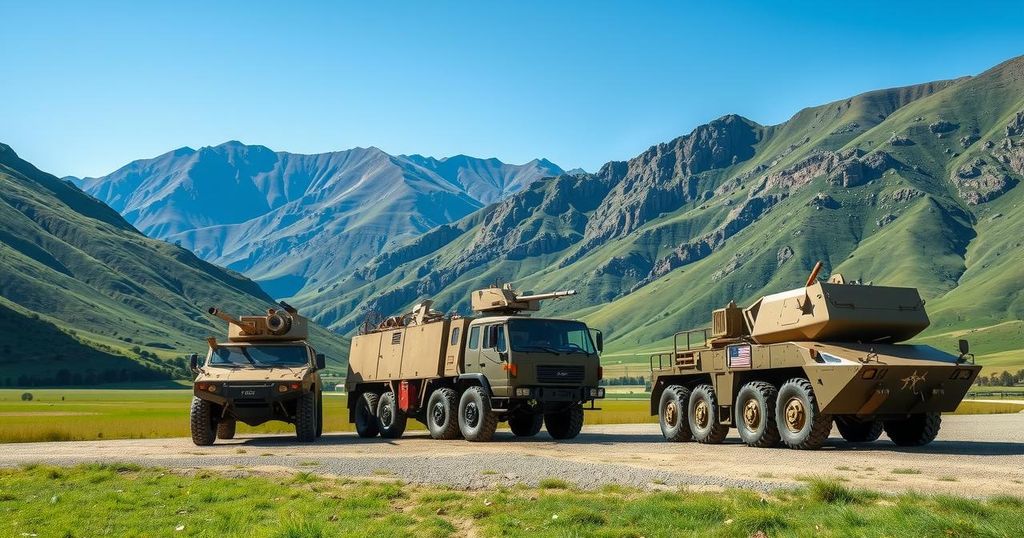Tajikistan has unveiled the HQ-17AE surface-to-air missile system from China, indicating a strengthening military partnership and modernization efforts. While details of the deal are unclear, the acquisition suggests proactive steps towards enhancing national defense against regional instability. This development aligns with China’s broader strategy in Central Asia and may impact the geopolitical landscape in the region.
Tajikistan recently showcased the Chinese-made HQ-17AE surface-to-air missile (SAM) system during a military parade in Dushanbe, commemorating the 32nd anniversary of its armed forces. This event underscores notable developments in Tajikistan’s military capabilities and its strengthening partnership with China. While the transaction’s details, including cost and quantity, remain undisclosed, it is believed that the deal was finalized in late 2024, contributing to Tajikistan’s efforts to modernize its defense strategy.
The HQ-17AE, seen for the first time in the parade, represents a significant upgrade for Tajikistan. Observers noted that the mobile air defense system, which combines various advanced technologies, is particularly suitable for the country’s mountainous terrain. Analysts suggest that the system may be vital for safeguarding Tajikistan’s airspace, especially concerning potential threats from Afghanistan and ongoing tensions with Kyrgyzstan.
The HQ-17AE is a modernized version of earlier systems, designed for the export market, featuring improved mobility and capabilities against a variety of aerial threats such as drones, aircraft, and cruise missiles. Its inclusion in Tajikistan’s arsenal suggests a deliberate shift towards enhancing national security amid regional instability, particularly against the backdrop of Afghanistan’s uncertain political climate.
Regional dynamics highlight Tajikistan’s rationale for enhancing its military. Afghanistan’s ongoing instability, particularly since the Taliban’s resurgence, poses security challenges, driving Tajikistan to bolster its air defenses. Moreover, relations with Kyrgyzstan have been strained, marked by border disputes that have flared into violence. The acquisition of the HQ-17AE aligns with Tajikistan’s broader defense strategy of preparing for potential conflicts and securing its borders.
China’s involvement through the sale of the HQ-17AE aligns with its geopolitical strategy in Central Asia, where it has increased political and economic influence via the Belt and Road Initiative. Tajikistan’s acquisition can be viewed as an extension of this partnership, further integrating it into China’s strategic sphere. Speculations suggest that favorable financial terms may have incentivized Tajikistan to pursue this acquisition, reflecting a trend of military cooperation that has gradually intensified since 2016.
While the benefits of acquiring such equipment are clear, challenges remain in terms of operational readiness and integration into Tajikistan’s military framework. Experts emphasize that training and support for personnel handling the system will be critical for its effectiveness. As the region evolves, the long-term implications of Tajikistan’s military modernization efforts in cooperation with China are likely to reshape the security landscape, impacting regional alliances and defense strategies over time.
The acquisition of the HQ-17AE by Tajikistan highlights its strategic efforts to modernize military capabilities amidst regional tensions and instability. This transaction reflects deepening ties with China, indicating a shift in Central Asia’s geopolitical dynamics. While the specifics of the deal remain unclear, its implications could alter responses to security challenges posed by neighboring nations and contribute to a more robust defense posture in Tajikistan.
Original Source: bulgarianmilitary.com






